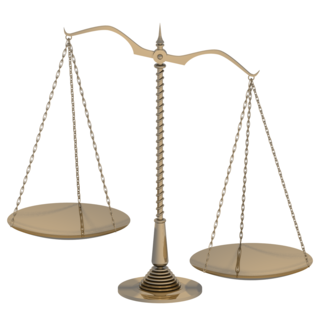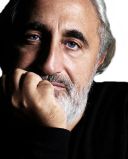Coronavirus Disease 2019
Life Is a Series of Trade-Offs
The psychological ill effects of COVID-19.
Posted April 19, 2020 Reviewed by Kaja Perina

The current global pandemic has rightly focused on strict containment and mitigation strategies to limit the spread of the Coronavirus. In an effort to do so, we have hit the pause button on our daily lives including the shutting of the world’s economies. That said, a growing chorus of politicians, policy makers, and academics are beginning to warn about the downstream consequences of a prolonged shutdown including the possible increased rates of suicide, anxiety, and depression. See my recent chat with Paul Offit, an infectious diseases specialist, wherein we tackle the matter.
Back in 2007, I published a paper in Medical Hypotheses examining the links between the global ratio of male-to-female suicides and economic conditions around the world. Using data from the World Health Organization and the World Bank, I obtained a marginally significant correlation between male-to-female suicide ratios and average per capita gross national income. Simply put, as macroeconomic realities worsen, the ratio becomes more heavily skewed toward men. This is in line with the fact that men more so than women commit suicide due to employment/financial concerns (cf. Zacharakis et al., 2005, p. 112, Table 4). From an evolutionary perspective, this is not very difficult to explain since threats to a man’s social status (in part as measured by his economic prospects) loom much larger in the mating arena than they do for women (as captured by studies examining universal mate preferences). As I write this article, more than 22 million Americans have filed for unemployment as a result of the COVID-19 economic shutdown. Even if only 1% of economically devastated people were to engage in suicide ideation, this is hardly a trivial number. I suspect that if the lockdown goes on much longer, the suicide figures will be devastating and much more so for men. This is a very real concern that needs to be openly addressed.
A possible reason that many people have been reticent to discuss the reopening of the economy is that it feels gauche if not callous of them to do so. They wrongly presume that to consider pecuniary matters when dealing with a pandemic is vulgar. It is not. Life is all about trade-offs oftentimes shaped by a set of costs and benefits for a given course of action. Let me briefly offer a few such examples. Economists posit that consumers will continue to search for product information prior to making a choice, as long as the benefits of additional search outweigh the costs (how and when people stop acquiring additional information and commit to a choice was the topic of my doctoral dissertation). Chemotherapy is very toxic, but this reality is weighed against the benefits of killing cancer cells. A company facing a lawsuit weighs the pros and cons of a pretrial settlement against the prospect of going to court. The manner by which consumers allocate their yearly discretionary income amounts to a series of budgetary trade-offs. Life is a sequence of trade-offs dispersed across time and space.
Operations research is a field within applied mathematics that offers algorithmic prescriptions on how to achieve some optimal objective (e.g., how to allocate a company’s manufacturing plants to various production runs as to maximize profits). Most such problems involve multi-objective optimization (trade-offs between the pursuit of two or more objectives) subject to certain constraints. In other words, the world is rarely about optimizing a single variable (e.g., minimizing the number of deaths due to the Coronavirus) BUT it is about optimizing multiple objectives that potentially tug you in different directions (e.g., minimizing the spread of the Coronavirus AND minimizing the number of economic-based suicides). Incidentally, in chapter 5 of my forthcoming book The Parasitic Mind: How Infectious Ideas Are Killing Common Sense, I discuss this issue albeit as relating to which objectives universities should optimize as part of their mission statements.
The bottom line is the current COVID-19 crisis is an extraordinarily difficult multi-objective problem. Our politicians and public health experts are navigating across truly uncharted territory. The worst thing to do when dealing with such a complex reality is to politicize the process by casting blame at every turn. Those who are engaging in political mudslinging are either tribal hacks and/or ignorant fools. No one has any clear idea what the optimal course of action is, and if they tell you they do, they are liars. Let’s put aside political tribalism and focus on the only important issue at hand, namely on how to resume our lives whilst mitigating the health risks of doing so. We shall triumph over this scourge. Please be safe.


